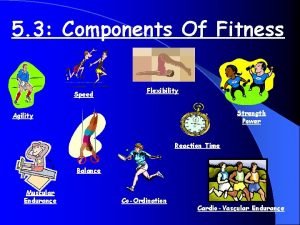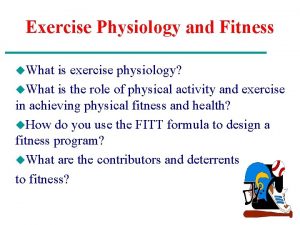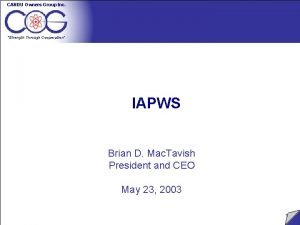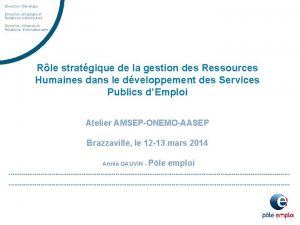God Give Us Endurance Direction and Discipline Week




















































- Slides: 52

God Give Us Endurance, Direction, and Discipline Week 14 9 December 2020


HEBREWS REVIEW Chapter 1: Jesus, Better than Prophets and Angels (1: 1 -14) 1: 1 -14 Chapter 2: Jesus, Better than the Angels (2: 1 -18) 2: 1 -18 Chapter 3: Jesus, Better than Moses (3: 1 -19) 3: 1 -19 Chapter 4: Jesus, Better than Joshua (4: 1 -16) 4: 1 -16 Chapter 5: Jesus, Better than Aaron as Priest (5: 1 -14) 5: 1 -14 Chapter 6: Jesus, Press On To Maturity (6: 1 -20) 6: 1 -20 Chapter 7: Jesus, After the Order of Melchizedek (7: 1 -17) 7: 1 -17 Chapter 8: New Covenant Better than the Old (8: 1 -13) 8: 1 -13 Chapter 9: New Sanctuary and Sacrifice Better than the Old (9: 1 -28) 9: 1 -28 Chapter 10: New Sacrifice Settles Our Faith and Salvation (10: 1 -39) 10: 1 -39 Chapter 11: Superiority of Christ Gives Us a Working Faith (11: 1 -40) 11: 1 -40 Chapter 12: A Working Faith in Christ Gives Us Endurance, Direction and Discipline (12: 1 -29) 12: 1 -29 THIS LESSON. . . Chapter 13: Christ Gives Us Endurance, Direction and Discipline (13: 1 -25). 13: 1 -25

HEBREWS CHAPTER 13 Overview of Chapter 13: • The epistle concludes with miscellaneous moral and religious exhortations regarding their conduct as Christians (1 -19) 1 -19. . . • Followed by a benediction, a final exhortation, and a farewell that mentions Timothy along with greetings from those who are from Italy (20 -25). 20 -25

HEBREWS CHAPTER 13 Points to Ponder in Chapter 13: • How we should live as Christians through endurance and directions. • How God makes us complete in every good work through love and discipline.


HEBREWS CHAPTER 13 Overview of Chapter 13: • Paul reminds us of the “three theological virtues” of faith, hope, and love. • Ch 11 presents a procession of men and women of faith worthy of emulation. • Ch 12 sets forth warning and essential advice to help believers stand strong in hope to endure the marathon of the Christian life. • Now, in Ch 13, Ch 13 Paul examines the Christian’s life of love for God and love for others.

HEBREWS CHAPTER 13 Overview of Chapter 13: • As this grand letter comes close to its conclusion, Paul becomes increasingly more personal, personal more encouraging, encouraging and even more practical • A casual glance at Ch 13 reveals the wide spectrum of concerns calling for a personal, practical response. • Paul talks about our relationship with other believers (v 1), v 1 strangers (v 2), v 2 prisoners (v 3), v 3 our spouse (v 4), v 4 money (v 5 -6), v 5 -6 leaders (v 7), v 7 Christ (v 8 -14), v 8 -14 God (v 15 -17), v 15 -17 prayer (v 18 -21), v 18 -21 and all the saints (v 22 -25). v 22 -25

Hebrews 13: 1 – 3 1 Let brotherly love continue. 2 Be not forgetful to entertain strangers: for thereby some have entertained angels unawares. 3 Remember them that are in bonds, as bound with them; and them which suffer adversity, as being yourselves also in the body.

HEBREWS CHAPTER 13 Discussion: • The first three verses set the tone of the rest of this “love” love chapter. Each demands from us a personal response. • Let brotherly love continue or “love of the brethren” is one word in Greek: philadelphia from the word philos = “kindly disposed, devoted” and the word adelphos = “brother. ” • Together, we get the idea of close, intimate love between family members.

HEBREWS CHAPTER 13 Discussion: • That is, live in a loving community with people who aren’t blood relatives but who share fellowship based on a common bond with Christ. Paul is telling us to keep on loving one another as brothers and sisters • Next, Paul juxtaposes v 1 against v 2 with the Greek word: philoxenia from the word philo = “family love” and from xenos = “strangers. ” You have heard of xenophobia = fear of strangers (foreigners), people not like us. Christians are to love the brethren and to show love for strangers.

HEBREWS CHAPTER 13 Discussion: • By showing hospitality toward strangers, some people have actually entertained “angels. ” • Next, Paul goes one more step outside our comfort zone of “philadelphia” to “prisoners. ” prisoners. That is, continue to remember those in prison as if you were together with them in prison, priso and those who are mistreated as if yourselves were suffering • In v 2, v 2 we’re told to open our homes to strangers; now in v 3, v 3 we’re told open our hearts and hands to actually go to the least among of us (Matt 25: 40). 25: 40


Hebrews 13: 4 -6 4 Marriage is honorable in all, and the bed undefiled: but whoremongers and adulterers God will judge. ( Marriage should be honored by all, and the marriage bed kept pure, for God will judge the adulterer and all the sexually immoral. )

HEBREWS CHAPTER 13 Discussion: • During the time of the writing of Hebrews, many held a low view of marriage. The Jewish sect of the Essenes despised marriage as an indulgence of the unholy flesh, emphasizing celibacy instead. • On the other hand, many in the immoral society that surrounded the original Hebrew audience treated marriage as an irrelevant commitment, commitment preferring to engage in fornication and all sorts of deviant practices destructive to marriage and the family.

HEBREWS CHAPTER 13 Discussion: • Christian marriage should be honored The marriage bed – the most intimate, personal aspect of the husband-wife relationship – should be kept “undefiled. ” undefiled • The marriage relationship should never be broken by adultery or defiled by fornication, fornication both of which will fall under the judgment of God • As Christians in a corrupt world, we can attend to our marriages and set an example of purity, sanctity, and faithfulness.


Hebrews 13: 5 - 7 5 Let your conversation be without covetousness; and be content with such things as ye have: for he hath said, I will never leave thee, nor forsake thee. 6 So that we may boldly say, The Lord is my helper, and I will not fear what man shall do unto me. 7 Remember them which have the rule over you, who have spoken unto you the word of God: whose faith follow, considering the end of their conversation.

HEBREWS CHAPTER 13 Discussion: • The principle examined in 13: 1 -4 can be summed as Christian commitment The next set of principles can be defined as Christian contentment – being at peace with what we have as well as with our position in life. • The marriage relationship should never be broken by adultery or defiled by fornication, fornication both of which will fall under the judgment of God • CONTENTMENT WITH MATERIAL THINGS – the believer’s relationship with money and material things in many places.

HEBREWS CHAPTER 13 Discussion: • Addressing contentment elsewhere in Scriptures, Paul writes in Phil 4: 11 -12, 4: 11 -12 “I have learned to be content. . . ” Also in 1 Tim 6: 7 -8, 6: 7 -8 Paul writes, “We have brought nothing into this world. . . ” • Paul knows the ever-present threat of the “love of money. ” Paul shares the same dim view of this greed for wealth in 1 Tim 6: 10, 6: 10 “the love of money is a root of all sorts of evil. . . ”

HEBREWS CHAPTER 13 Discussion: • Here, Paul tells his readers to keep their lives free from the love of money and be content with what they have, because God has said, “Never will I leave you; never will I forsake you. ” • Paul has been constantly warning his readers about the dangers of drifting, wandering, and falling from the faith. Issuing an admonition against money grubbing, grubbing Paul not only urges contentment, contentment but he also gets to the root of the lust for material wealth: doubts about God’s faithfulness as Provider and Protector (13: 5 -6). 13: 5 -6

HEBREWS CHAPTER 13 Discussion: • Hoping to inoculate his readers from the disease of doubt that drives discontent, discontent Paul quotes from Joshua 1: 5 and Psalm 118: 6 • With these passages, Paul undergirds the faithfulness of God in the same way he does in Phil 4: 19, 4: 19 “My God will supply all your needs according to His riches in glory in Christ Jesus. ”

HEBREWS CHAPTER 13 Discussion: • v 5: v 5 God has said, “Never will I leave you; never will I forsake you” (Joshua 1: 5). 1: 5 • v 6: v 6 So we say with confidence, “The Lord is my helper; I will not be afraid. What can mere mortals do to me” (Psalm 118: 6)? 118: 6 • In v 7, v 7 Paul addresses the matter of contentment with our God appointed position in the body of Christ. In the church, God has given leaders “who spoke a word of God” to those placed under their care

HEBREWS CHAPTER 13 Discussion: • To ignore or rebel against this leadership would be to neglect an essential means God has provided for our spiritual nourishment • When we find contentment in our position of humility, we can begin to remember our leaders, consider their conduct, and imitate their faith (13: 7). 13: 7 • We recall what it was about them that made an impact on our spiritual lives We contemplate how they themselves endure hardships and persevere to the end in faith and hope.

Hebrews 13: 8 - 9 8 Jesus Christ the same yesterday, and to day, and for ever. 9 Do not be carried away by all kinds of strange teachings. It is good for our hearts to be strengthened by grace, not by eating ceremonial foods, which is of no benefit to those who do so.

HEBREWS CHAPTER 13 Discussion: • Paul turns our attention from the shifting world to a cluster of changeless truths concerning Jesus Christ and the plan and purpose of God. The practical implications are clear – in a constantly changing, unreliable world – Jesus remains the same Only in Him can we place our faith, cast our hope, and know how to love (13: 8). 13: 8 • God’s immutability has been defined as “God’s inability to change His divine nature or character or be altered by finite circumstances or events. ”


HEBREWS CHAPTER 13 Discussion: • The unchangeableness of Christ’s character, nature, purpose, plans, and promises keeps believers in Christ from being swept away by the swift currents of “varied and strange teachings (doctrine)” doctrine mentioned in 13: 9 • False doctrines come in all shapes and sizes because they spring from people’s shifting imagination, not from the unchanging person and work of Christ. In Paul’s day, these false teachings attacked the fundamental principle of grace

HEBREWS CHAPTER 13 Discussion: • God had granted the gifts of salvation and spiritual strength through Jesus Christ by the power of the Holy Spirit. • However, false teachers, like those trying to woo Jewish believers back to the Law, were attempting to enslave believers – who had been saved by grace through faith – under an obsolete system of dietary regulations that was never meant to provide inner strength.


Hebrews 12: 10 - 17 10 We have an altar from which those who minister at the tabernacle have no right to eat. 11 The high priest carries the blood of animals into the Most Holy Place as a sin offering, but the bodies are burned outside the camp. 12 And so Jesus also suffered outside the city gate to make the people holy through his own blood. 13 Let us, then, go to him outside the camp, bearing the disgrace he bore. 14 For here we do not have an enduring city, but we are looking for the city that is to come. 15 Through Jesus, therefore, let us continually offer to God a sacrifice of praise—the fruit of lips that openly profess his name. 16 And do not forget to do good and to share with others, for with such sacrifices God is pleased. 17 Have confidence in your leaders and submit to their authority, because they keep watch over you as those who must give an account. Do this so that their work will be a joy, not a burden, for that would be of no benefit to you.

HEBREWS CHAPTER 13 Discussion: • Here, Paul takes one last swipe against the obsolete practices of Judaism This time, the contrast is more practical – those who find Christ superior for pressing on and those who opt to return to an empty religion. • Here, we find five specific things that believers have as they abandon the uncertain beliefs and practices of a shifting world to hold firm to the unchangeable grace of the Lord Jesus.

HEBREWS CHAPTER 13 Discussion: • These five things are: an altar to use (10), 10 a reproach to bear (11 -13), 11 -13 a city to seek (14), 14 a sacrifice to offer (15 -16), 15 -16 and leaders to follow (17). 17 • FIRST – an altar to use (10). 10 Christians have an altar completely distinct from the system of animal sacrifices at the tabernacle. Here “altar” is used as an image for the perfect sacrifice of Christ on the cross. When we sin, we don’t rush to the priest with animal in tow; we turn to Christ alone, alone whose blood paid for all of our sins – past and future

HEBREWS CHAPTER 13 Discussion: • SECOND – a reproach to bear (11 -13). 11 -13 Paul makes both a comparison and a contrast between the animal sacrifices of the tabernacle and the sacrifice of Christ on the cross. Animal sacrifices were burned “outside the camp” – Jesus was crucified “outside the gate” of the city of Jerusalem as if he were a sinner. • Christ’s death outside the city gate was a mark of reproach – numbered with the transgressors. Christ endured ridicule and mocking while hanging on the cross though he deserved worship and praise


HEBREWS CHAPTER 13 Discussion: • THIRD – a city to seek (14). 14 No matter where we live, or for how long, we’re still temporary residents Nations, kingdoms, and empires are fleeting. We frequently change our latitude and longitude, because here, we do not have a lasting (enduring) city • This is why we should never forget that we are longing for an unchanging reality grounded in God – “for the city which is to come” (14). 14

HEBREWS CHAPTER 13 Discussion: • FOURTH – a sacrifice to offer (15 -16). 15 -16 We have no physical, earthly altar … no bloody animal sacrifice … no position worthy of the world’s praise … and no permanent place of earthly citizenship. • Paul states that we continually offer to God a “sacrifice of praise, ” which he explains as giving thanks to God. In short, God wants all of us, as Paul says, to “present your bodies a living sacrifice, holy and acceptable to God, which is your spiritual service of worship (Rom 12: 1). 12: 1

The fruit of our lips

HEBREWS CHAPTER 13 Discussion: • FINALLY – a leader to follow (17). 17 False teaching has its leaders too. In fact, the Lord Jesus warned His own disciples to beware of them; they come in sheep clothing, but are ravenous wolves (Matt 7: 15). 7: 15 • Paul states that Jesus gave to the church gifted leaders – apostles, prophets, evangelists, pastors, and teachers – to equip the church for ministry and to help them grow into the image of Christ, no longer tossed about by every wind of doctrine or trickery of men, or deceitful scheming (Eph 4: 11 -14). 4: 11 -14

Hebrews 12: 18 - 19 18 Pray for us. We are sure that we have a clear conscience and desire to live honorably in every way. 19 I particularly urge you to pray so that I may be restored to you soon.

HEBREWS CHAPTER 13 Discussion: • As we grow and mature in the faith, faith we realize that praying for one another is a core purpose of the body of Christ. James 5: 16 says, “Pray for one another, ” and Paul unashamedly asked the Thessalonians to “pray for us” (1 Thes 5: 25). 5: 25 • Here, Paul asks his readers to support him in prayer Though he knew that he and his ministry team were operating with a “good conscience” (13: 18), 13: 18 he also knew that the warnings he had extended to the recipients with regard to backsliding applied equally to all believers.

HEBREWS CHAPTER 13 Discussion: • Without the mutual prayer support of fellow believers, Paul could potentially turn his attention away from Christ and His superiority in pressing on. • Paul also share with his readers a prayer request of a more specific and personal nature: “That I may be restored to you the sooner” (13: 19). 13: 19 Paul had the absolute confidence in the power of prayer – specifically the power of the church coming together before throne of God.


Hebrews 13: 20 - 21

HEBREWS CHAPTER 13 Discussion: • Paul offers a Benediction and a Final Greetings to his readers. Paul prays the peace (shalom) of God upon them that they would be equipped to do Christ’s will. • God alone is able to grant the kind of peace, wholeness, and healing these readers needed. • Finally, Paul exhorts them once more to heed the words he has written to them before extending a few final comments and greetings With these words, we catch a glimpse of the heartbeat of our author and the great love he had for his audience.

HEBREWS CHAPTER 13 Discussion: • Here, Paul prays that the God of peace will give (equip) equip his readers every good things they need so that you can do what Christ commands. • Paul reminds them that it was God who brought again (raised) from the dead our Lord Jesus – the Great Shepherd of his sheep – through the sacrificed of his blood to establish an everlasting new covenant • Paul prays that God will work through Jesus Christ to do the things in us that are “well pleasing” to him. To him be glory forever. Amen


HEBREWS CHAPTER 13 Discussion: • FIRST – Paul exhorts his readers to bear with the truth of God (13: 22). 13: 22 That is, not only read this letter again and again, but also heed its words and warnings, and apply them to your heart. • SECOND – Paul reminds them to take notice of the people of God (13: 23). Specifically, his close friend and “child in the faith, ” Timothy Moreover, maintain holy contact with one another who are in the faith.

HEBREWS CHAPTER 13 Discussion: • FINALLY – Paul encourages the church to express and accept greetings (13: 24 -25). 13: 24 -25 That is, to engage in hospitable recognition of one another. It extends beyond the “nuclear family” family of a local church to include “extended family” family of other congregations spread throughout the world. • After these three final commands, Paul concludes in 13: 25 with a short farewell; a simple but powerful prayer for grace: “Grace be with you all. Amen. ”


Review Class – 16 December 2020 Letter to the Hebrews Review your handouts and submit your question via email: calundy@comcast. net or ask them in class.

Questions THE END
 Give me the direction
Give me the direction Direction of intention
Direction of intention Week by week plans for documenting children's development
Week by week plans for documenting children's development What is the main idea of give me liberty or give me death
What is the main idea of give me liberty or give me death Give thanks to the lord our god and king
Give thanks to the lord our god and king Differentiate muscular strength from muscular endurance
Differentiate muscular strength from muscular endurance Fitt table
Fitt table Venn diagram of muscular strength and endurance
Venn diagram of muscular strength and endurance Perdurance synonym
Perdurance synonym Strength speed endurance flexibility and
Strength speed endurance flexibility and Difference between strength and endurance
Difference between strength and endurance Give your whole heart to god
Give your whole heart to god God did not give
God did not give Tinman schwartz
Tinman schwartz Let us run with endurance the race that is set before us
Let us run with endurance the race that is set before us What is endurance?
What is endurance? Abb dry type transformer
Abb dry type transformer Stall speed increase with bank angle
Stall speed increase with bank angle Sharpened romberg test
Sharpened romberg test Example of balance in sports
Example of balance in sports Muscular endurance workout
Muscular endurance workout Haydee endurance test
Haydee endurance test Halimbawa ng cardiovascular endurance
Halimbawa ng cardiovascular endurance Haydee endurance test
Haydee endurance test Endurance de force cometti
Endurance de force cometti It is the ability to do strength work at an explosive pace.
It is the ability to do strength work at an explosive pace. Grade 7 physical education
Grade 7 physical education Endurance limit
Endurance limit Hebrews 10:36 sermon
Hebrews 10:36 sermon Randfontein mogale endurance ride
Randfontein mogale endurance ride Special endurance 1 workouts
Special endurance 1 workouts Local muscular endurance fitness test
Local muscular endurance fitness test Cardiorespiratory endurance synonym
Cardiorespiratory endurance synonym Endurance management group
Endurance management group Bc endurance project
Bc endurance project Describe cardiorespiratory endurance
Describe cardiorespiratory endurance What is fitness
What is fitness Local muscular endurance definition
Local muscular endurance definition Endurance trainig
Endurance trainig Regina high performance endurance
Regina high performance endurance Brian mac muscular endurance
Brian mac muscular endurance Awesome god medley
Awesome god medley Our god is an awesome god vine
Our god is an awesome god vine Our god is an awesome god
Our god is an awesome god God is good god is great speed
God is good god is great speed O god you are my god earnestly i seek you
O god you are my god earnestly i seek you God-given virtues that direct us to our loving, triune god.
God-given virtues that direct us to our loving, triune god. Justice new testament
Justice new testament My god's bigger than your god
My god's bigger than your god Ethics and employee rights and discipline
Ethics and employee rights and discipline Ethics and employee rights and discipline
Ethics and employee rights and discipline Difference between dip and plunge
Difference between dip and plunge Rounding off decimals rules
Rounding off decimals rules











































































